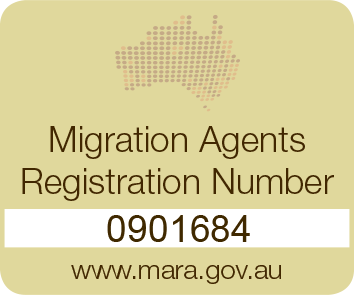The end of a long-term relationship is always a difficult time. Add a partner visa situation into the mix and it can become a nightmare. It can be a confusing, intimidating or frustrating process to have to go through. That’s why in this week’s blog post we are going to take a look at what some of your options are if you and your partner have split.

De Facto Relationship
Under the Migration Act, a de facto relationship one in which you and your partner are not married or related but are a couple living together for at least 12 months, or you have registered your relationship under the relevant Relationship Registration Act of participating states (only WA and NT do not have such legislation). Under the Family Law Act, it is also possible for one party to be in a separate married or de facto relationship and for the relationship to still be considered de facto, however, this is not possible under the Migration Act.
After a split from your de facto partner, and if your ex-partner informs the Department of Home Affairs (DOHA), DOHA advises you that they have been informed, and it will ask you to respond. If you hold a provisional 309 or 820 visa (temporary), DOHA will take steps to cancel your visa if you cannot prove that your relationship is intact. As such, it is important to be time-sensitive and find out if you can apply for an alternative visa before your current one is cancelled.
There are certain cases in which you may be able to apply for and be granted, a permanent partner visa after a de facto relationship has broken down. These include:
- If your spouse or de facto partner has passed away, or
- If you or a dependent family member has suffered family violence because of your former partner, or
- If you have access to, or custody of, Australian children of the relationship.
Family Violence
In a serious situation such as family violence, the most important thing to note is that leaving an abusive relationship may not threaten your immigration status. In fact, it may even be possible to progress to permanent residence after a divorce or split from your de facto partner, where you have been a victim of family abuse.
You may be eligible for a permanent visa if your relationship has ended and if:
- You or a dependent child experienced domestic abuse perpetrated by your partner during the relationship, and
- You have a partner visa (309 or 820) or you have married your partner while you were on a Prospective Marriage Visa (subclass 300).
You will be asked to provide evidence of your specific situation. Types of evidence may include (but are not limited to):
- Court orders
- Photographs
- Police reports
- Medical/hospital reports
- Video evidence
- Social work/psychologists’ reports
In certain cases, it may be difficult to provide relevant evidence. If you are in this situation, it is strongly recommended that you contact an immigration lawyer.
It is also important to note that you are always able to access counselling services, no matter what your relationship, immigration or visa status is.
1800 RESPECT is a free, over-the-phone counselling service funded by the Australian Government’s Department of Social Services. It is confidential and available 24/7.

Divorce
As with the de facto relationship, if your visa is the provisional 309 or 820 visa, DOHA will proceed to cancel it when they have evidence that the relationship is no longer existent. While you may not have to leave Australia instantly if your visa is cancelled, time is of the essence in this situation and you should consult a professional immediately to discuss your options.
However, if you hold a permanent partner visa (including the 801 or 100), your visa will not be cancelled since it is a permanent residence visa. In this instance, both parties can keep their visas.
What if my ex-partner and I have children?
As mentioned earlier, you may be eligible to remain in Australia under a permanent partner visa if you have custody of, or access to, dependent children of the former relationship.
For clarification, a dependent child refers to someone who is your direct, adopted or step-child who is under the age of 18. If they are over 18, they can still be considered your dependent child if:
- They have been substantially or entirely dependent on you – over anyone else – for basic resources (such as food, clothing and shelter) for a minimum of 12 months
- They have been dependent on you due to a physical or mental disability that prevents them from gaining their own income.
Regardless of their age, if your child is in a de facto relationship, engaged, or married, they cannot be considered dependent.
What next?
While the situations listed above are more common, it is important to remember that yours may be unusual or unique and may require professional consultation. To seek answers to more frequently asked visa questions or to have your individual situation assessed, don’t hesitate to contact one of our immigration lawyers or registered migration agents on 1300 887 818.

 Points Test
Points Test
 Book Now
Book Now 

